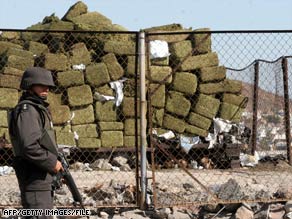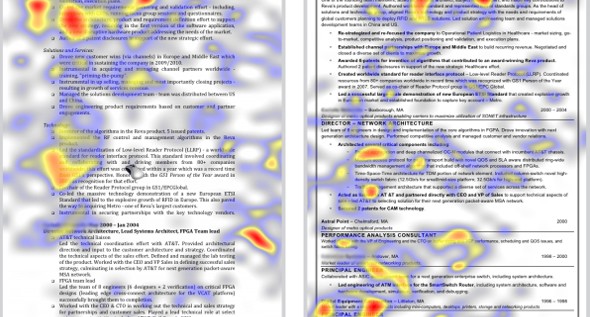While We Protested SOPA, They Already Passed ACTA

 The Anti-Counterfeiting Trade Agreement (ACTA) is a plurilateral agreement for the purpose of establishing international standards for intellectual property rights enforcement. The agreement aims to establish an international legal framework for targeting counterfeit goods, generic medicines and copyright infringement on the Internet, and would create a new governing body outside existing forums, such as the World Trade Organization, the World Intellectual Property Organization, or the United Nations.
The Anti-Counterfeiting Trade Agreement (ACTA) is a plurilateral agreement for the purpose of establishing international standards for intellectual property rights enforcement. The agreement aims to establish an international legal framework for targeting counterfeit goods, generic medicines and copyright infringement on the Internet, and would create a new governing body outside existing forums, such as the World Trade Organization, the World Intellectual Property Organization, or the United Nations.
The agreement was signed on 1 October 2010 by Australia, Canada, Japan, Morocco, New Zealand, Singapore, South Korea and the United States. In January 2012, the European Union and 22 of its member states signed as well, bringing the total number of signatories to 31. After ratification by 6 states, the convention will come into force.
Supporting and negotiating countries have heralded the agreement as a response to “the increase in global trade of counterfeit goods and pirated copyright protected works”, while opponents have lambasted it for its potentially adverse effects on fundamental civil and digital rights, including freedom of expression and communication privacy.Others, such as the Electronic Frontier Foundation, have derided the exclusion of civil society groups, developing countries and the general public from the agreement’s negotiation process and have described it as policy laundering. The signature of the EU and many of its member states resulted in the resignation in protest of the European Parliament’s appointed rapporteur, as well as widespread protests across Poland.
SOPA and PIPA are stalled (or dead) in the halls of the U.S. Congress. Yet, there may be a bigger, perhaps more dangerous threat to Internet freedoms on the way, called the Anti-Counterfeiting Trade Agreement, or ACTA. At least that’s how U.S. Rep. Darrell Issa, R. – Calif., sees it, telling an audience, “As a member of Congress, it’s more dangerous than SOPA. It’s not coming to me for a vote. It purports that it does not change existing laws. But once implemented, it creates a whole new enforcement system and will virtually tie the hands of Congress to undo it.”
The stunning declaration came during what was actually an upbeat panel discussion at the World Economic Forum in Davos, Switzerland. The convo, part of Mashable’s Documented@Davos program at the WEF, featured U.S. Rep. Issa, Wikipedia Founder Jimmy Wales, Google SVP and Chief Legal Officer David Drummond, Scribd Cofounder and CEO Trip Adler, and Mashable CEO Pete Cashmore.
Congress’s inability to change ACTA, Issa added, is “what makes ACTA very dangerous. It sounded probably to people like a good idea, but people should ask, why did they work around the WTO [World Trade Organization] and all the existing bodies? I think the answer is: They could work in secret. They could get it done, and then they could tell people you couldn’t change it.”
Unlike SOPA, (Issa called it “radioactive”) and PIPA, which are bills in Congress, ACTA is a more far-reaching, global treaty that seeks to normalize copyright protection and intellectual property standards across participating nations. It even addresses offline issues like counterfeit pharmaceuticals.
ACTA already has significant support. Signers include Poland, France, Italy, Japan, Singapore, Switzerland, South Korea and, yes, the U.S. (it signed last year). While it’s unclear if ACTA shares the same “draconian” enforcement measures, Issa said, “Many of the things in SOPA are basically implied in ACTA.”
If the movement against ACTA, which is gathering steam in countries such as Poland, takes off, the anti-SOPA protest may provide the blueprint for a wide-scale counteroffensive. Prior to the SOPA and PIPA protests, the panelist noted, the tech community had only informally lobbied Washington on issues like education, visas and other items not necessarily closely related to technology. However, the game changed with SOPA. The relatively young tech community, which, as Google’s Drummond noted, does not have the political organization or clout of, say, an older industry like Hollywood, transitioned from sending letters to Congress to taking direct action, and taking the issue directly to their site visitors and customers. Drummond said the Web community now may have “the prospects of a lasting coalition that will give us a bigger voice in Washington.”
Protesting SOPA
During the panel, Wikipedia’s Wales described how the community-sourced online encyclopedia made the decision to protest SOPA by going dark. He noticed in early December 2011 that “SOPA seemed to be on a fast track. Was really being pushed through and not a lot was being done to stop it.” The possibility of a Wikipedia protest was discussed and decided by the community. “In the end, we held a vote, and 87% were in favor,” recalled Wales. It was a dramatic act soon followed by many other online destinations. As Congressman Issa sees it, this was the right approach.
“I don’t want to understate the importance of money, I think everyone gets that that’s part of the process of politics at all levels. But …a broad coalition is more powerful than any amount of money.” Issa believes his fellow congressmen may now think twice before supporting similar legislation, “The next time the content community comes with a pre-packaged bill that they’ve written, every office is going to say, ‘And how does the tech community feel about it?’ ” Issa told the panel.
Issa has sponsored another piece of online legislation known as the Online Protection & ENforcement of Digital Trade Act or OPEN Act, which has found some support among Facebook and Google, two Internet companies that opposed SOPA and PIPA.
No one is denying the issues of copyright infringement and content piracy remain, but Scribd’s Trip Adler, who said his site “wouldn’t be able to exist if SOPA was in place,” thinks it’s time to take a different approach. “We can innovate our way to a solution that’s good for the users, good for the Internet and good for content owners,” he said. Google’s Drummond agreed, “There are ways to deal with these problems with technology and being smart about it where we don’t actually have to have legislation.”
ACTA on the Way
While panelists talked about what they saw as the relatively secrecy under which ACTA was authored, ACTA is by no means a new initiative. Posts about the act started emerging online as early as 2008 (the initiation began with the U.S. and Japan in 2006). Canada’s Foreign Affairs and International Trade site offers a comprehensive lookat the act, and even tackles the claim that ACTA was built and ratified in secret:
“This process has not been kept from the public. On October 23, 2007, the partners involved in ACTA at that time publicly announced that they had initiated preliminary discussions on ACTA. Several countries involved in ACTA have conducted public consultations on the key proposed elements of the ACTA.”
One thing is clear: The temperature is finally rising for ACTA, and at least one Congressman now publicly sees it as a greater threat than SOPA. You can see the entire panel in the exclusive video above.
What do you think? Is ACTA bigger, badder and more worrisome than SOPA and PIPA, or is Issa simply trying to steer votes to his own legislation? Share in the comments.




